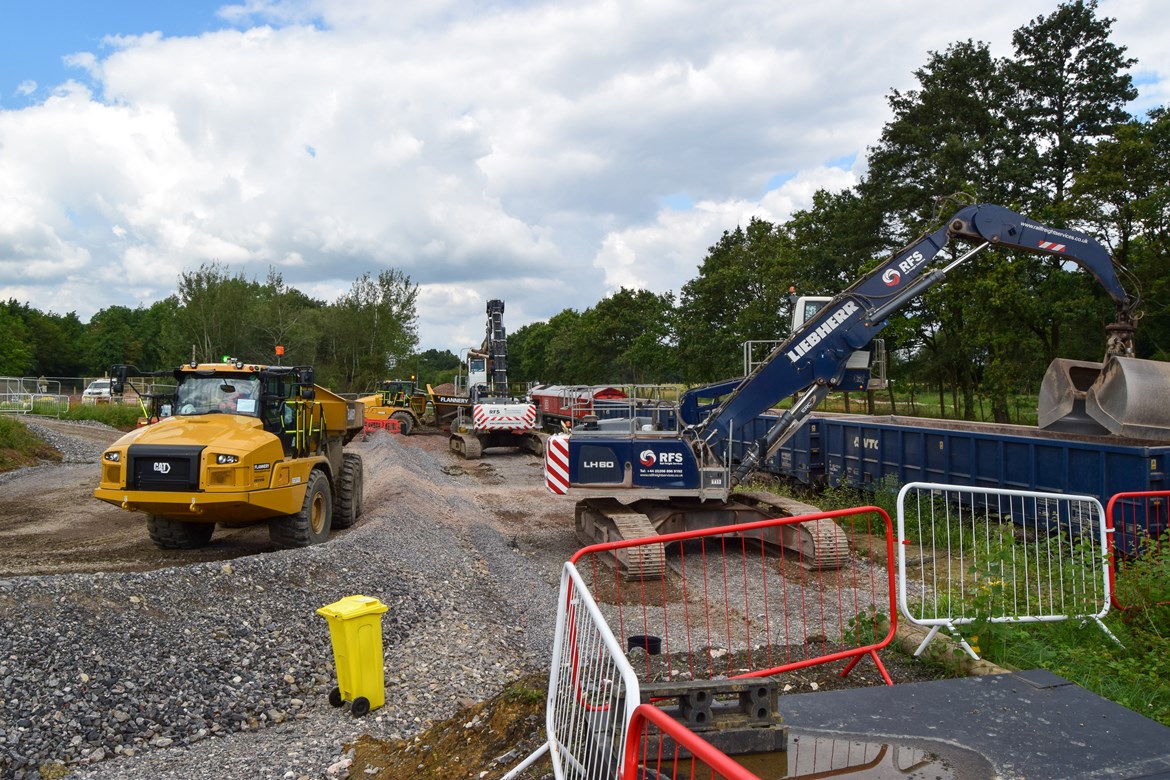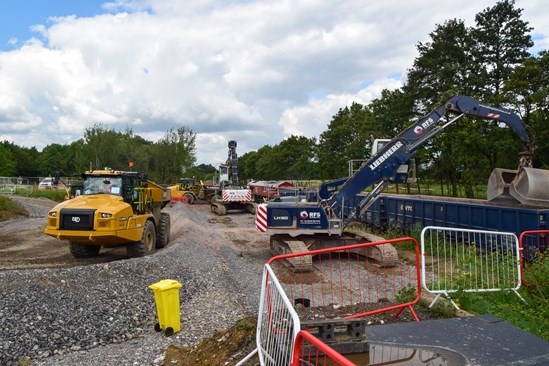The new railhead – the second to be built at Calvert – will allow HS2 to run an extra 150 aggregate trains over the next 2 months, saving 8,300 tonnes of carbon and taking the equivalent of 24,000 trucks off the roads.
Once work is complete, HS2 will pass by Calvert in a 2.5 mile long cutting roughly following the route of the disused Great Central Railway, with a spur off to a new Infrastructure Maintenance Depot from which engineers will repair and maintain the new line.
The Infrastructure Maintenance Depot – which is expected to create around 180 jobs locally – will sit alongside the new East-West Rail line which is currently being reopened in stages between Oxford, Milton Keynes, Bedford and Cambridge. Closed in the 1960s, the reopened East-West Rail line will cross HS2 just north of Calvert.
In order to reduce overall disruption for local residents and boost efficiency, HS2 are also delivering 3km of earthworks for East-West Rail where it crosses HS2 including a spur to allow a potential East-West Rail extension to Aylesbury.
HS2 Ltd’s Senior Project Manager, Paul Marshall said:
“We’re making strong progress at Calvert and the opening of the new railhead means that we can continue to deliver huge amounts of materials by rail – taking trucks off local roads and reducing disruption for the local community.
“We’ve been working closely with Network Rail, EKFB and the Freight Operators for a number of years to make this possible, and to deliver not only low carbon journeys for our passengers, but also cut carbon in construction.”
Already 369 freight trains have arrived at the first Calvert railhead – meaning that, by the end of the year more than 840,000 tonnes of construction materials will have been delivered – taking the equivalent of 84,000 trucks off the roads and saving 29,000 tonnes of carbon.
Construction is being is being managed by HS2’s main works contractor EKFB – a team made up of Eiffage, Kier, Ferrovial and Bam Nuttall. EKFB are delivering the 80km central section of the route, including 17 viaducts, 81 bridges and three ‘green tunnels’ and are set to create 4,000 jobs over the next two years. The trains are operated by DB Cargo, DCRail, Hanson and Mendip Rail.
EKFB Operations Director, Peter Bimson said:
“We are delighted to be at the forefront of carbon reduction in the construction industry, and bringing this aggregate into Calvert by train instead of road is not only more efficient, but significantly reduces our impact on the environment.
“Removing thousands of HGVs from the roads in the Calvert area also demonstrates our commitment to the local community in delivering EKFB’s section of the HS2 project with as little impact as possible.”
Across the whole HS2 project, 15,000 freight trains are set to be used to haul 10 million tonnes of aggregate to construction sites – taking the equivalent of 1.5 million HGVs off the UK’s roads.

